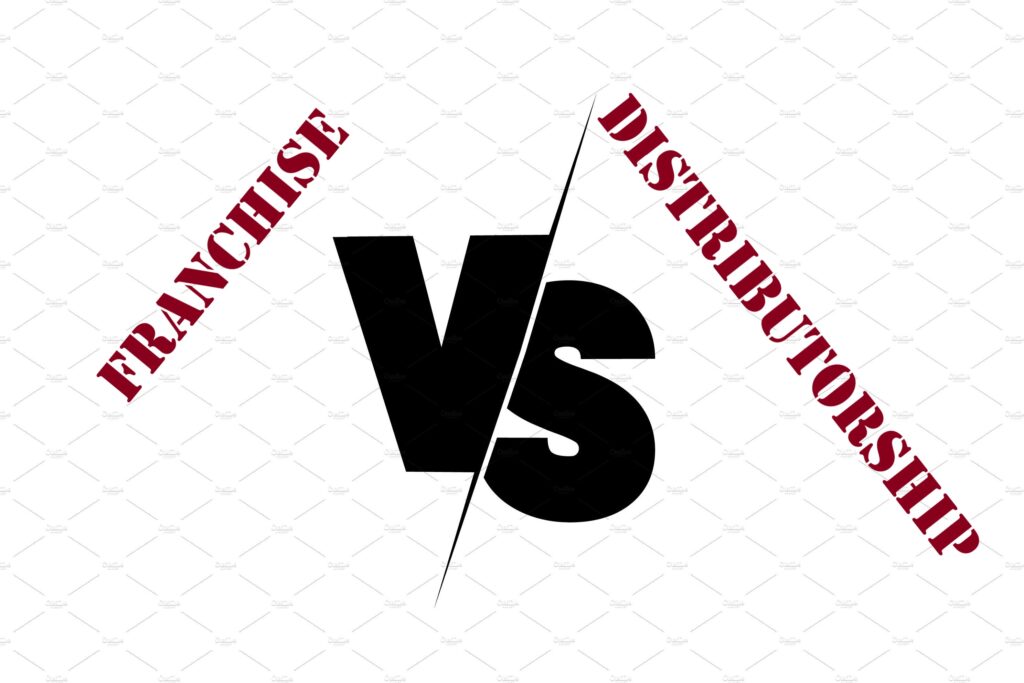
In the world of business, two terms that often get intertwined but hold distinct meanings and structures are franchise and distributorship. While both involve the distribution of goods or services, they operate on fundamentally different models. Understanding these differences is crucial for entrepreneurs looking to expand their business or partner with established brands. In this article, we will delve into the nuances of franchise and distributorship, exploring their definitions, structures, benefits, challenges, and key considerations.
1. Defining Franchise and Distributorship
Franchise: A franchise is a legal and commercial relationship between the owner of a trademark, brand, or business model (franchisor) and an individual or entity (franchisee) granted the right to operate under the franchisor’s brand name and business system. The franchisee typically pays initial fees and ongoing royalties in exchange for support, training, and access to the franchisor’s established business model.
Distributorship: A distributorship, on the other hand, refers to an arrangement where a manufacturer or producer (supplier) appoints an independent entity (distributor) to sell and distribute its products or services within a specific geographic area or market segment. Unlike a franchise, a distributor operates independently and may not use the supplier’s brand name as prominently as a franchisee would.
2. Key Differences in Business Structure
Control and Independence:
- Franchise: Franchisees operate under strict guidelines and standards set by the franchisor, including business practices, branding, and product/service offerings. Franchisees have less autonomy but benefit from established brand recognition and support.
- Distributorship: Distributors have more autonomy in their operations and business decisions. They may have flexibility in pricing, marketing strategies, and customer relationships. However, they bear more responsibility for their success and may not receive as much support from the supplier compared to a franchisee.
Brand Usage and Identity:
- Franchise: Franchisees operate under the franchisor’s brand name, adhering to specific branding guidelines and standards. This affiliation with a well-known brand can attract customers and build credibility.
- Distributorship: Distributors may sell products/services under their own brand name or a private label, depending on the agreement with the supplier. They have the opportunity to establish their brand identity but may lack the immediate recognition associated with a franchise brand.
Financial Commitments:
- Franchise: Franchisees typically pay initial franchise fees, ongoing royalties based on sales or profits, and may contribute to marketing or advertising funds. The initial investment can be substantial but provides access to a proven business model and support.
- Distributorship: Distributors often purchase products or services from the supplier at wholesale prices and sell them at retail prices, earning a margin. They may have lower initial investment requirements compared to franchises but bear more financial risk and responsibility for inventory management and sales performance.
3. Benefits and Advantages
Franchise:
- Established Brand Recognition: Franchisees benefit from operating under a well-known brand with existing customer trust and loyalty.
- Proven Business Model: Franchises offer a tested and refined business model, reducing the risk of failure associated with starting a new venture from scratch.
- Training and Support: Franchisors provide comprehensive training, ongoing support, marketing assistance, and operational guidance to franchisees.
- Access to Resources: Franchisees gain access to suppliers, technology, marketing materials, and operational resources through their affiliation with the franchisor.
Distributorship:
- Independence: Distributors enjoy greater autonomy in decision-making, pricing strategies, and market positioning.
- Flexibility: Distributors can customize their product offerings, target specific customer segments, and adapt quickly to market changes.
- Lower Entry Costs: Distributorships often require lower initial investment compared to franchises, making them more accessible to entrepreneurs with limited capital.
- Diverse Product Portfolio: Distributors can work with multiple suppliers and offer a range of products or services, diversifying their revenue streams.
4. Challenges and Considerations
Franchise:
- Initial Investment: Franchisees must be prepared for significant upfront costs, including franchise fees, equipment, inventory, and operational expenses.
- Ongoing Fees and Royalties: Franchisees pay ongoing royalties and may contribute to marketing funds, impacting their profitability.
- Limited Autonomy: Franchisees must adhere to strict operational guidelines and may have limited flexibility in decision-making.
- Contractual Obligations: Franchise agreements often have long-term commitments and strict terms, requiring careful consideration and legal review.
Distributorship:
- Market Competition: Distributors may face intense competition from other distributors, retailers, and online channels operating in the same market.
- Supplier Relationships: Maintaining positive relationships with suppliers is crucial for securing favorable terms, pricing, and product availability.
- Inventory Management: Distributors must manage inventory levels, storage, and logistics efficiently to meet customer demand and minimize costs.
- Marketing and Branding: Distributors need to invest in marketing and branding efforts to differentiate themselves and attract customers in a competitive landscape.
5. Selecting the Right Model for Your Business
When deciding between a franchise and distributorship, entrepreneurs should consider several factors:
- Business Goals: Determine your long-term objectives, growth plans, and desired level of involvement in business operations.
- Financial Resources: Assess your available capital, budget for initial investment, ongoing expenses, and potential return on investment.
- Industry and Market Trends: Research market demand, competition, consumer preferences, and regulatory requirements relevant to your business sector.
- Legal and Contractual Considerations: Seek legal advice to review franchise agreements, distributor contracts, rights, obligations, and potential risks.
- Support and Training: Evaluate the level of support, training, and resources offered by franchisors or suppliers to ensure alignment with your business needs.
Franchise and distributorship are distinct business models with unique advantages, challenges, and considerations. Franchises offer brand recognition, proven business models, and support but require significant financial investment and adherence to strict guidelines. Distributorships provide independence, flexibility, and lower entry costs but require effective supplier relationships, market competitiveness, and marketing efforts. Entrepreneurs should carefully assess their goals, resources, market dynamics, and legal implications when choosing between these models to maximize success and profitability in their business ventures.